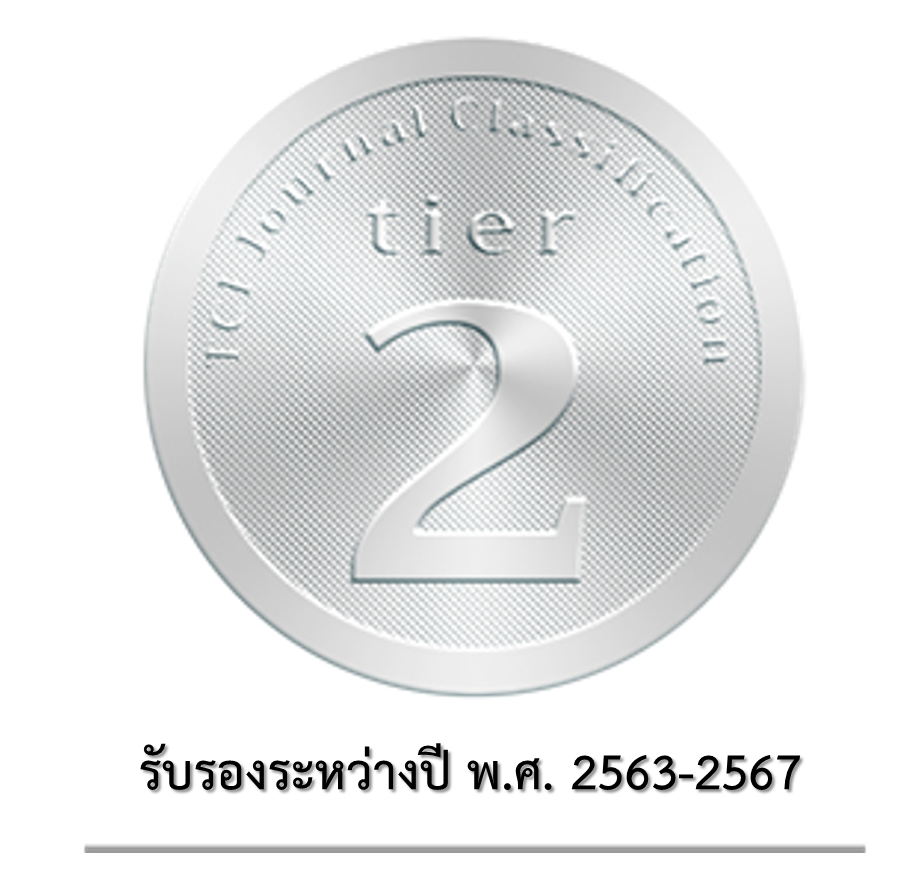ประสิทธิผลของแนวการสอนภาษาแบบธรรมชาติที่มีต่อการส่งเสริมระดับภาษาอังกฤษของนักศึกษาครูตามกรอบอ้างอิงความสามารถทางภาษาของสหภาพยุโรป (CEFR)
##semicolon##
กรอบอ้างอิงความสามารถทางภาษาของสหภาพยุโรป##common.commaListSeparator## แนวการสอนภาษาแบบธรรมชาติ##common.commaListSeparator## การศึกษาครูสอนภาษาอังกฤษในฐานะภาษาต่างประเทศ##common.commaListSeparator## ทฤษฎีการสร้างความรู้ด้วยตนเองAbstract
การวิจัยนี้ศึกษาประสิทธิผลของแนวการสอนภาษาแบบธรรมชาติระดับภาษาอังกฤษของนักศึกษาครูตามกรอบอ้างอิงความสามารถทางภาษาของสหภาพยุโรป (CEFR) และกระบวนการสอนภาษาแบบธรรมชาติต่อการส่งเสริมความสามารถทางภาษาอังกฤษ ผู้เข้าร่วมวิจัยได้แก่ นักศึกษาครู สาขาวิชาภาษาอังกฤษจำนวน 70 คน ซึ่งลงทะเบียนเรียนรายวิชาการจัดการชั้นเรียนภาษาอังกฤษ เป็นระยะเวลา 17 สัปดาห์ เครื่องมือวิจัยเชิงปริมาณด้วยคือแบบทดสอบวัดระดับความสามารถทางภาษาอังกฤษ 50 Min EF SET ที่สอดคล้องกับ CEFR การวิจัยนี้เก็บรวบรวมข้อมูลเชิงปริมาณด้วยการเปรียบเทียบผลสอบก่อนเรียนและหลังเรียนด้วยแนวการสอนภาษาแบบธรรมชาติ และวิเคราะห์ข้อมูลเชิงปริมาณด้วยสถิติเชิงพรรณนา ข้อมูลเชิงคุณภาพมาจากเรียงความสะท้อนความคิดและวิเคราะห์ข้อมูลด้วยการวิเคราะห์เนื้อหา ผลการวิจัยพบว่าผู้เข้าร่วมวิจัยทุกคนมีคะแนนสูงขึ้น และคะแนนของผู้วิจัยจำนวน 60 คน อยู่ในระดับที่สูงขึ้นตามกรอบอ้างอิงความสามารถทางภาษาของสหภาพยุโรป (CEFR) นอกจากนี้ห้องเรียนตามแนวการสอนภาษาแบบธรรมชาติที่ช่วยเร่งความสามารถทางภาษาอังกฤษของผู้เข้าร่วมวิจัยประกอบด้วยปัจจัย 5 ด้าน ได้แก่ เนื้อหาการเรียนรู้ ภาษาที่ใช้เป็นสื่อการสอน สื่อและช่องทางการเรียนรู้ งานมอบหมาย และปฏิสัมพันธ์ในห้องเรียน การวิจัยแสดงให้เห็นว่าแนวการสอนภาษาแบบธรรมชาติมีประสิทธิผลโดยเฉพาะอย่างยิ่งต่อผู้เรียนระดับ A1 และ A2 ภาษาอังกฤษเป็นสื่อการสอนมีบทบาทสำคัญในการส่งเสริมให้ผู้เรียนได้มีประสบการณ์สื่อสารภาษาอังกฤษ ปฏิสัมพันธ์ในห้องเรียนระบบสองภาษาส่งเสริมให้ผู้เรียนใช้ภาษาภาษาอังกฤษในการสื่อสาร
##submission.downloads##
Published
##submission.howToCite##
Issue
Section
##submission.license##
##submission.copyrightStatement##
##submission.license.cc.by-nc-nd4.footer##


